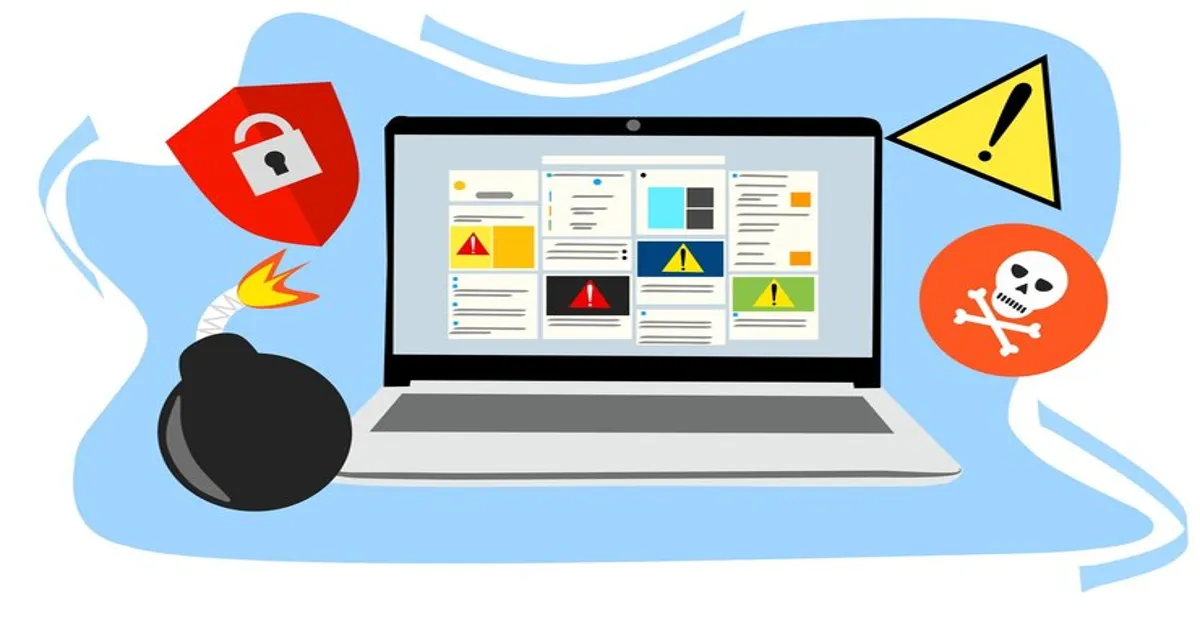If you’ve ever searched for a way to activate Microsoft Windows or Office without paying for a license, you’ve likely encountered the term “KMSPico download.” But what exactly is it? And more importantly, what are you really downloading when you seek it out? Within the first few seconds of consideration, users are confronted not only with technical tools but also with ethical, legal, and cybersecurity implications. This article breaks down everything you need to know about KMSPico — what it is, how it works, why it’s widely downloaded, and the hidden dangers that rarely get discussed.
What Is KMSPico?
KMSPico is a software tool designed to activate Microsoft products like Windows and Office without a purchased license key. The tool emulates a Key Management Service (KMS), a system originally designed by Microsoft for enterprise use, which allows organizations to activate large volumes of software across multiple machines using a central server. KMSPico exploits this mechanism to “trick” the software into thinking it’s been legitimately activated.
The software is typically small — under 10 MB — and runs quietly in the background. Once executed, it modifies system files to remove activation alerts and provide access to full product features, without requiring a legal license.
Read: Ethics at iofbodies.com: Navigating Identity, Consent, and Data Dignity in the Digital Age
Why People Download KMSPico
At its core, KMSPico exists because Microsoft software is expensive. A legitimate copy of Windows 11 or Microsoft Office 365 can cost between $100 and $250, depending on the version. In regions where income levels are lower, or for individuals who only need temporary access to these tools, this price tag can be prohibitive.
The appeal of KMSPico lies in:
- Cost avoidance – No need to purchase expensive licenses.
- Simplicity – With a few clicks, users can activate their software.
- Availability – It’s found easily online, often through forums and torrent sites.
- No crack files – Unlike older methods, KMSPico doesn’t require you to overwrite critical files or use keygens.
But convenience, as it turns out, comes with a price — often one that users don’t see until it’s too late.
How KMSPico Works (Technically Speaking)
To fully grasp what you’re dealing with when you download KMSPico, it helps to understand the KMS activation system that Microsoft uses.
KMS was originally designed for corporations managing dozens, hundreds, or even thousands of computers. Rather than manually entering a unique license key on each machine, IT departments could use a central Key Management Server to activate systems internally. Microsoft checks that the server is authorized, and all connected computers are considered activated.
KMSPico imitates this process:
- Installs a fake KMS server on your machine.
- Forces the Windows or Office software to “check in” with this local server.
- Fakes a successful activation status.
- Sets the software to re-validate periodically (every 180 days), continuing the cycle.
To the end user, the software appears fully functional and licensed. But under the hood, it’s being constantly re-activated through an unauthorized method — something that Microsoft’s security systems may eventually detect.
Is KMSPico Legal?
No, it is not legal.
Under Microsoft’s terms of service, using third-party tools to activate software without a valid license is considered software piracy. While individuals are rarely prosecuted for personal use, the risk exists — particularly for organizations or professionals who may use pirated tools in a business environment.
Additionally, downloading and using KMSPico can:
- Violate copyright laws in many countries.
- Expose individuals or companies to civil lawsuits.
- Risk product deactivation or denial of service from Microsoft.
Even if enforcement is inconsistent, legality is not a gray area here — using KMSPico is clearly outside the bounds of legal software use.
The Security Risks of Downloading KMSPico
1. Malware Infection
Perhaps the biggest and most immediate risk of downloading KMSPico is malware. Because the tool must bypass system security, it often requires administrative access and antivirus exceptions — exactly the permissions that malware needs to infiltrate your machine.
Most users don’t download KMSPico from a secure or verified source. It is widely distributed across:
- Torrent sites
- Online forums
- File-sharing platforms
- YouTube “guides” with suspicious links
Many of these files are bundled with spyware, crypto miners, or backdoors that allow hackers to gain control of your system.
2. No Updates or Support
KMSPico disables official verification with Microsoft servers. That means you may not receive essential:
- Security patches
- Bug fixes
- New features
In the long term, this weakens system stability and leaves machines vulnerable to zero-day attacks.
3. System Instability
By modifying core system files, KMSPico can cause unforeseen side effects. Some users report:
- Blue screen crashes
- Failed system updates
- Office programs becoming corrupted
- Activation loops that lead to permanent lockouts
Even if the tool works initially, future issues are likely — particularly when Microsoft releases a major update.
4. Data Privacy Compromise
With full system access granted to a third-party executable, your data may be exposed. From browser cookies and saved passwords to confidential files, KMSPico bundles have been known to harvest personal information — particularly in newer variants disguised as “updated” versions.
KMSPico and the Ethics of Digital Ownership
While most discussions of KMSPico focus on legal or technical issues, there’s a deeper question underneath: What does it mean to own digital tools in the modern age?
For many users, especially students or individuals in under-resourced countries, expensive software feels unfairly inaccessible. KMSPico then becomes not just a tool, but a form of digital protest — a way to access knowledge and functionality locked behind high paywalls.
On the other hand, ethical concerns persist:
- Is using pirated software justified if you can’t afford it?
- Do developers and companies not deserve to be compensated for their work?
- What happens when free tools come at the cost of privacy or system integrity?
These questions remain unresolved. But one thing is clear: there are better alternatives than risking your system with KMSPico.
Alternatives to KMSPico
If affordability is the reason you’re considering KMSPico, you’re not alone — but there are legal and secure options available.
1. Microsoft 365 Free Version (Web-based)
Microsoft offers free, web-based versions of Office apps (Word, Excel, PowerPoint) with a Microsoft account. While limited in features, they provide most core functionalities without any activation required.
2. Student and Nonprofit Programs
Many universities, colleges, and nonprofits offer free or heavily discounted access to Microsoft software through official channels. Always check with your institution before seeking third-party tools.
3. Open-Source Alternatives
Several excellent free tools offer functionality comparable to Microsoft Office:
- LibreOffice – A full-featured open-source alternative to MS Office.
- Google Workspace – Docs, Sheets, and Slides offer seamless collaboration in the cloud.
- OnlyOffice – Known for its compatibility with Microsoft file formats.
While not identical, these tools are legal, secure, and stable, providing long-term peace of mind.
Why KMSPico Remains Popular Despite the Risks
The short answer is ease and convenience.
Most users are not cybercriminals — they are simply trying to access tools they feel they need to succeed. KMSPico offers them a seemingly easy way out, with minimal upfront effort.
But what appears to be “free” software often comes with hidden costs — from compromised systems to loss of personal data and access to critical updates.
In some cases, the time, stress, and damage caused by infected or broken systems far outweigh the original software cost.
Final Thoughts: Should You Download KMSPico?
While the temptation is understandable, the risks far outweigh the rewards. From legality to malware to ethical dilemmas, using KMSPico is a short-term solution that may cause long-term problems.
In the evolving digital age, ownership is becoming more complex. But trust, security, and support still matter — and pirated tools like KMSPico compromise all three.
If you’re struggling to afford software, explore open-source and educational alternatives. They’re safer, legal, and in many cases, just as effective.
Summary: What You Need to Know About KMSPico Download
| Aspect | Details |
|---|---|
| What it is | Software to activate Microsoft products without a license |
| How it works | Emulates Microsoft’s Key Management Server (KMS) |
| Legal status | Illegal under copyright and license laws |
| Security risks | High risk of malware, spyware, and data theft |
| Impact on your system | Potential instability, loss of updates, corrupted files |
| Ethical concerns | Piracy vs. access debate |
| Alternatives | LibreOffice, Google Docs, Microsoft Web apps, educational licenses |
| Should you use it? | Strongly discouraged due to legal and security implications |
FAQs
1. What is KMSPico and what does it do?
KMSPico is a third-party software tool designed to illegally activate Microsoft Windows and Office products without a valid license key. It simulates a Key Management Service (KMS) server, tricking the software into thinking it has been legitimately activated.
2. Is downloading or using KMSPico legal?
No, using KMSPico is illegal. It violates Microsoft’s licensing terms and constitutes software piracy. Even if used for personal purposes, it breaches copyright laws and may carry legal consequences, especially in commercial or organizational environments.
3. Can KMSPico harm my computer or data?
Yes. KMSPico is often distributed through unverified sources that bundle malware, spyware, or ransomware with the tool. It requires administrative privileges, which can be exploited by malicious actors to access your data, disable security systems, or corrupt files.
4. Are there safe and legal alternatives to KMSPico?
Yes. Free alternatives include Microsoft’s own web-based Office apps, Google Docs, LibreOffice, and discounted student or nonprofit licenses. These tools are secure, legal, and often provide sufficient functionality for personal and professional use.
5. Why do people still download KMSPico despite the risks?
Many users are attracted by the promise of free software and simple activation. However, most are unaware of the significant legal, ethical, and cybersecurity risks involved. What appears to be a quick fix often leads to long-term problems.











